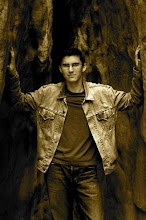
Personally, I think that’s a ridiculous thing to say. Me? Dislike something because other people like it? Never. Some people just don't understand the high art of being contrary.Besides, this movie only proves how cool I really am. Undoubtedly, a whole generation will try being indie because they saw (500) Days of Summer, but I want the world to know that I was crushing on Zooey Deschanel, wearing skinny ties, and listening to The Smiths long before this movie came out.

There were certainly indie romances before (500) Days of Summer, and there will certainly be indie romances after it. However, I have a feeling that this movie will become the gold standard for the genre. On one hand, the movie feels as if it were made using an “Everything-You-Need-To-Do-To-Be-Indie” checklist. But on another, nothing in (500) Days of Summer ever felt forced, pretentious, or manipulative to me. The movie has that genuine, authentic feel which is a prerequisite for indie art.
Essentially, (500) Days of Summer is a love story told in non-linear form. It’s about Tom (Joseph Gordon-Levitt) and his 500-day romance with Summer Finn (Zooey Deschanel). We see their first meeting, their first conversation, their first flirtations, their first date, their first sex, their first fight, and their final break-up, but not in chronological order. As the story develops in its non-linear way, we see an ironic shift. Tom begins as a determined romantic who believes in love and destiny, but he so convinced that Summer is “the one” that their break-up destroys all his hope and optimism. However, though Summer begins as this generation’s equivalent of Holly Golightly, she eventually “converts” to his view. The question is will Tom ever regain his faith in life and love? It seems unlikely, until a final conversation with the newly-married Summer and a fateful encounter with a girl named Autumn convince him that relationships do happen for a reason, and that love and lifelong relationships might actually be possible.
I would describe (500) Days of Summer as a “feel-good” movie, which is an unusual thing to say since it’s a “boy-meets-girl” story where the boy doesn’t get the girl. This is an almost-romance, a story about that special girl who was almost the girl. Parts of it hurt because they feel so true to life. This is certainly a feel-good movie, but it’s not without substance and it’s not without a little heartache.
I liked (500) Days of Summer for two primary reasons. The first is that I happen to love Zooey Deschanel (I even listen to The Who because of her). The second reason is that I happen to really like romances (a little-known Cole fact). By romance, however, I don’t mean chick-flicks. More often than not, chick-flicks are to women what action movies and pornography are to men – very cheap and perverse imitations of the things that remind us what it means to be a real man or woman.

Once upon a time, the word romance was a complex term; it conveyed a sense of adventure, mystery, and excitement. That’s been lost today. Now, romance generally just means vanilla “boy-meets-girl” stories where all of life’s problems are resolved in a kiss. However, every so often, a movie like (500) Days of Summer comes along to remind us that human relationships are an adventure in the full sense of the word – full of everyday danger, beauty, excitement, mystery, and pain. They do not always work out. They do not always neatly resolve. They do not always make sense. More often that not, they break down more than they build-up. But in the end, there are two ways to look at the situation. The first is the cynical way, which causes us to see human relationships as empty and meaningless. The other way is the adventurous way, which requires us to see past the initial pain and emptiness. Ultimately, I think it requires a great deal of courage to look at life as an adventure. But all love, beauty, and meaning is dependent on bravery. None of those things can be found unless we have the courage to look for them.
J.R.R. Tolkien use to say the most dangerous thing in the world is stepping out your front door. I think he was right. It’s a big world, and you never know who you’re going to fall in love with.

I love The Smiths...and I love you, Zooey Deschanel.






